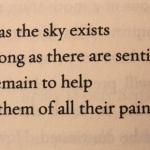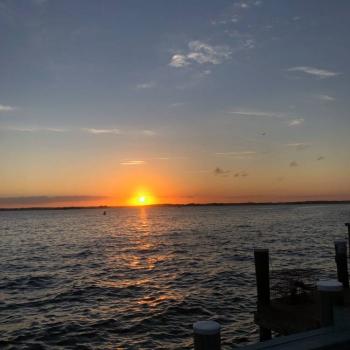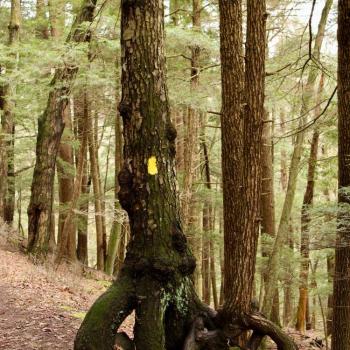The topic of this discussion was inspired by a podcast I was listening to with Dr. Adam Clark of Xavier University in Cincinatti Ohio (https://adamlclark.com/). In a conversation with Josh Patterson of the (RE)Thinking Faith Podcast, Dr. Clark mentioned the comparison of cosmetic diversity vs. Deep pluralism.
Cultural Diversity and Peace and Justice
At the heart of my education in undergraduate and in both of my graduate programs was some sort of emphasis on cultural diversity. In college, I spent time with a group that focused on peace and justice work. We would go on mission trips throughout the year, usually during the breaks to places like rural Michigan, Kentucky, and urban settings like New York City. In seminary, I was exposed for the first time to different liberation theologies. In my counseling masters, I was challenged to write about how to work with clients of diverse cultural backgrounds.
This training has shaped my mind in such a way that when I see a person of color, a woman, or a member of the LGTBQ+ community, I not only see a person, but I also see a child of God; a potential for the seat of Christ. I also see a story, a history.
The focus of this post is going to look at the story, the history. As a disclaimer, I am a middle age white man. I tell this to my BIPOC, women and LGBQT+ clients all the time. While I not only have book knowledge around these issues and quite a bit of exposure, none of this also compares to the shared lived experiences these people face generationally and every day.
Deep pluralism
According to Dr. Diana Eck of the Pluralism Project at Harvard Univeristy, pluralism is (https://pluralism.org/about) :
Pluralism is an ethic for living together in a diverse society: not mere tolerance or relativism, but the real encounter of commitments.
When our churches claim an open and affirming status or open hearts, doors and minds, what are they really talking about here? Is this, as Dr. Grant suggests, cosmetic diversity or is there a deep commitment to learning to live together? It has been my experience that when you really push people to understand and listen, people stop listening or in my case, ask me to leave. The Pluralism project focuses mostly on deep ecumenism, but I believe the concepts can spread across to race, sexuality, and gender acceptance.
Potential Seats of Christ
At the beginning of many Buddhist texts, one will find this passage:
‘Oh nobly born, oh you who are the sons and daughters of the awakened ones, the Buddhas and the bodhisattvas. Do not forget who you really are, do not forget your true nature.’ They begin with this beautiful expression of respect to you, that you were born with a basic goodness and a heart of compassion that is born into every child. You are born with a capacity to awaken and live in a wise and caring way in this world. Do not ever forget who you are.
Thomas Merton in his famous mystical experience on 4th and Walnut revealed this (From Conjectures of a Guilty Bystander);
“In Louisville, at the corner of Fourth and Walnut, in the center of the shopping district, I was suddenly overwhelmed with the realization that I loved all those people, that they were mine and I theirs, that we could not be alien to one another even though we were total strangers. It was like waking from a dream of separateness, of spurious self-isolation in a special world, the world of renunciation and supposed holiness… This sense of liberation from an illusory difference was such a relief and such a joy to me that I almost laughed out loud… I have the immense joy of being man, a member of a race in which God Himself became incarnate. As if the sorrows and stupidities of the human condition could overwhelm me, now I realize what we all are. And if only everybody could realize this! But it cannot be explained. There is no way of telling people that they are all walking around shining like the sun.”
At the end of the creation narratives, God declared all creation good. The Buddhist teacher, Jack Kornfield offers in response to the opening passage noted above, that as a society, we are unwilling to admit our vulnerabilities and see our interconnectedness. On those different than us, we project these differences through hate and ignorance. The fear that we may be wrong causes us to cling to this ignorance. We cling to our ignorance because it keeps us from looking at our own pains and vulnerabilities. In behavioral work, when we talk about bullies, we often point out that their behaviors are driven by their own fears and insecurities.
Our Call to Compassion
It is felt that we are at a tipping point in society right now. Churches have significantly lost the ability to be beacons of hope to many. Too often, churches dig their heels in and stick to the ways we have always done things.
Churches must awaken to the realities of a changing world. I talk to many millennial and Gen Z clients daily and weekly. They tell me a similar message; the church is out of touch. The church defends its perpetrators, it is full of hypocrites.
It is time for churches to see their places of worship as hospitals for the poor in spirit. To be sanctuaries of peace not plastic marquees touting openness. It is time for pastors devoted to the word to start preaching the radical words from the religious orientation of Jesus rather than the man made religion of Jesus.
It is time to cultivate a compassionate, deep pluralism and openness to all the seats of Christ in our presence.

















